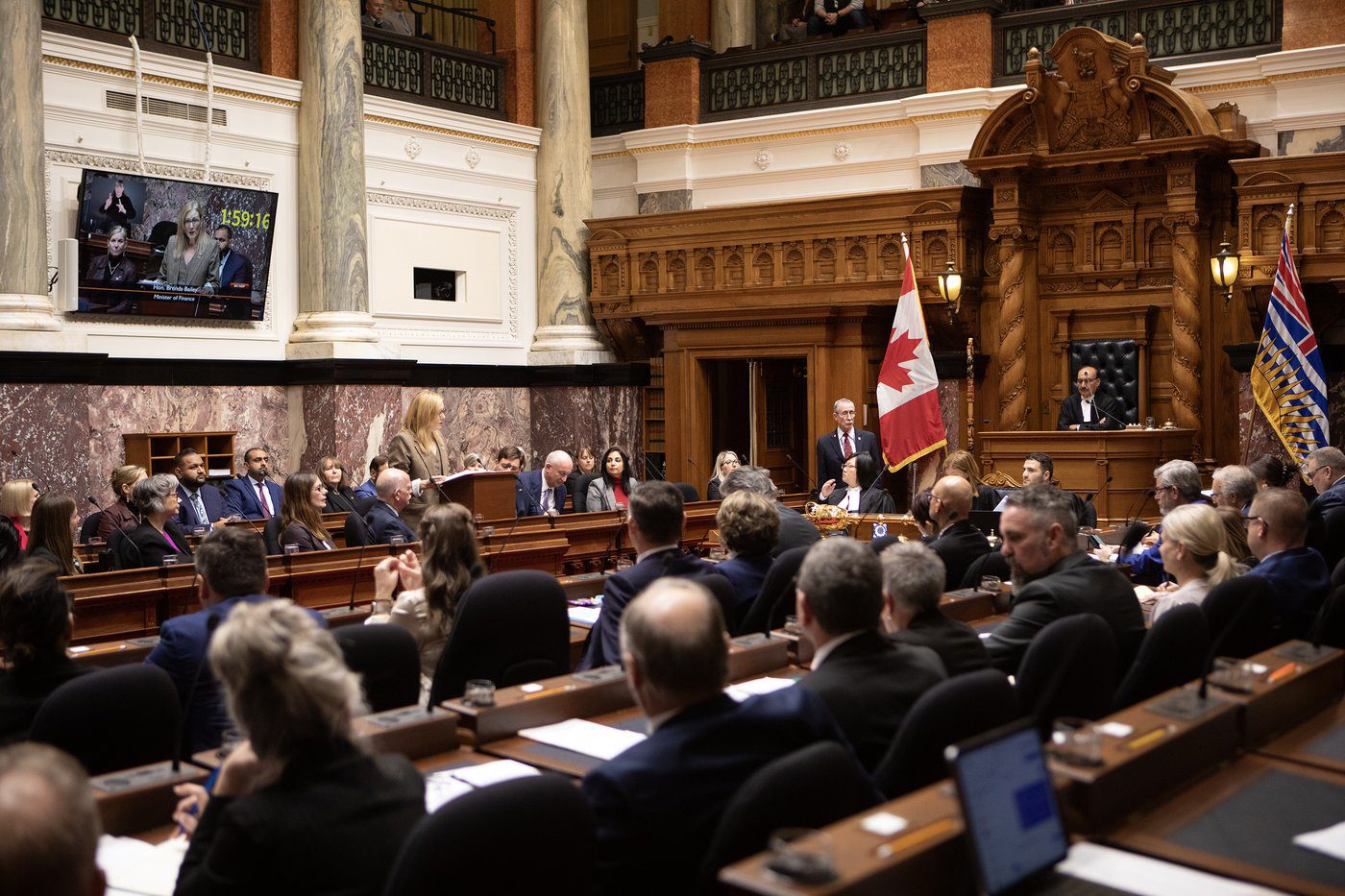VICTORIA — Industry and labour groups say the British Columbia government is hunkering down in its budget in response to the tariffs from United States, but it should be more clear on how it plans to respond in its economic plan.
Finance Minister Brenda Bailey presented B.C.’s first $10-billion deficit on the same day as U.S. President Donald Trump’s new tariffs against Canadian goods began.
Former provincial health minister Terry Lake, now the chief executive of the BC Care Providers Association, says Bailey’s budget has little new programming, and most of the capital projects in the document have already been announced.
Lake says the province could have taken a bigger step in updating its procurement model, which he says could have built more with the same amount of money.
BC General Employees’ Union President Paul Finch says he is happy to see that the budget isn’t cutting major services, but adds that B.C. “needs an economic development plan,” which is absolutely critical to workers in the province.
Fiona Famulak, CEO of the B.C. Chamber of Commerce, says she is disappointed the budget contained little that would be “unlocking the potential of … natural resource sectors” or providing incentives for businesses to spur economic activity.
This report by The Canadian Press was first published March 4, 2025.
Chuck Chiang, The Canadian Press





